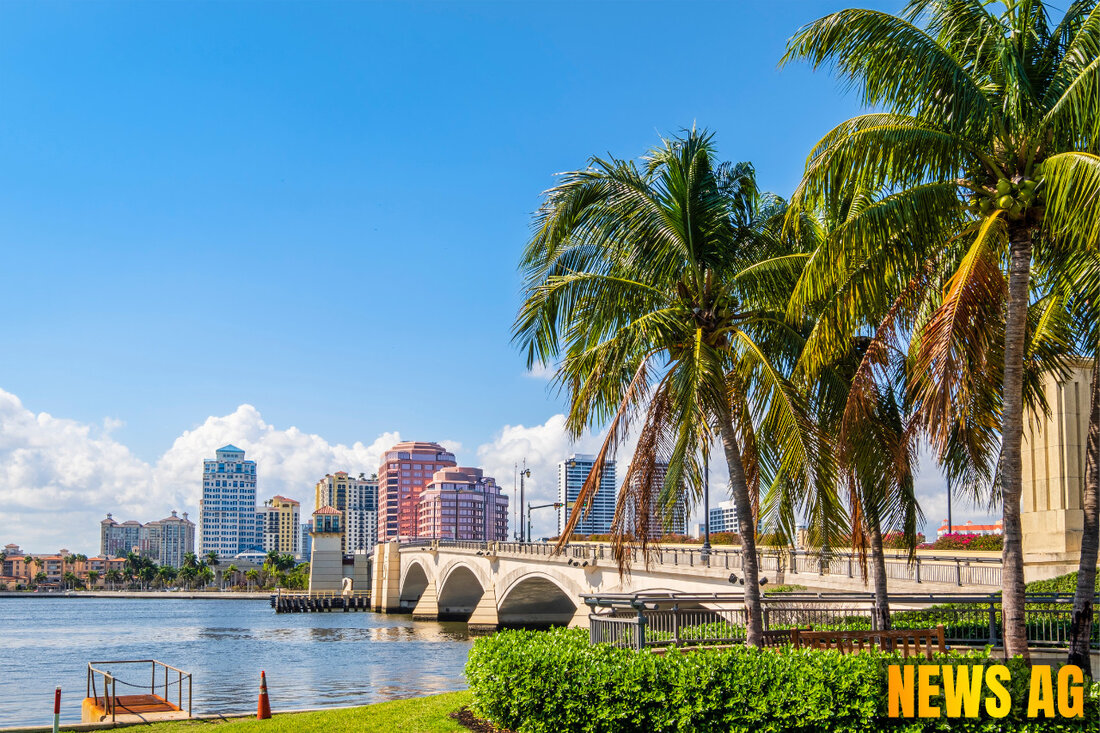Central Florida Businesses Face Crisis as Immigration Laws Bite Hard
Explore how recent immigration policies impact Hispanic businesses in Volusia County, highlighting economic concerns and labor shortages.

Central Florida Businesses Face Crisis as Immigration Laws Bite Hard
Leaders at the Mexican Consulate in Orlando are sounding the alarm over the troubling economic repercussions of recent immigration crackdowns, specifically impacting Hispanic-owned businesses. During a press conference held by Mexican Consul Juan Sabines and former State Senator Linda Stewart, concerns surfaced about the visible decline in both customer traffic and labor availability in Central Florida. Business owners like Luz Estrella Velasco, who runs Taquería Estrella, have experienced a significant slowdown, adjusting her operating hours from 3-4 p.m. to noon-1 p.m. due to a drop in business. „The fear among customers is impacting everything,“ Velasco remarked, highlighting the chaotic environment that has enveloped her establishment.
Stewart reported a stark observation: every restaurant she visited faced a shocking 30-65% drop in business. With approximately 2,600 Mexican restaurants across Florida feeling the brunt of these issues, Sabines also noted the loss of essential staff members like servers and cooks. This crisis not only threatens the survival of these businesses but also jeopardizes the cultural heritage and contributions they provide to the community. Velasco, reflecting on her personal toll, expressed deep distress over friends and neighbors leaving due to the immigration policies. „It’s hard to see my community fractured,“ she said, summing up the emotional impact of these changes.
Broader Economic Implications
The challenges faced by Central Florida’s Hispanic businesses mirror a larger trend influenced by Florida’s stringent immigration policies enacted under Governor Ron DeSantis. The Florida Policy Institute speculates that the immigration law could cost the state’s economy as much as $12.6 billion in its first year. This law particularly targets undocumented workers, crucial to various sectors such as agriculture, hospitality, and construction.
Reports indicate that over 40% of farmworkers nationwide are undocumented, and Fidel Sanchez, owner of Sanchez Farm in Plant City, expressed his trepidations about the sustainability of his business due to labor shortages. Many workers that he’s relied upon for decades have disappeared, and without them, operations are becoming increasingly untenable. As businesses grapple with the labor exodus, the community is left facing broader economic fallout that could ripple through multiple industries.
The Effects of SB1718
Signed into law on February 14, 2025, SB1718 imposes harsh penalties on employers who utilize undocumented labor. These measures include criminalizing illegal immigration and eliminating in-state tuition for approximately 6,500 undocumented students. The establishment of a new State Board of Immigration Enforcement further deepens concerns, with local law enforcement now required to cooperate with federal immigration officials.
With an estimated 1.2 million unauthorized immigrants in Florida, making up about 5% of the state’s population, the repercussions of these laws are expected to hit industries reliant on immigrant labor hard. The implications are stark, with many fearing that without significant policy changes, Florida could soon find its once-thriving industries struggling to survive.
The growing sentiment among business owners is one of frustration. Ana Maria Perez, a fruit market owner, is contemplating leaving Florida due to the dire impact of SB1718 and the escalating anti-immigrant sentiment. Perez, who started as a fruit picker, pointed out that available labor is declining and costs are skyrocketing since the law’s enactment. “We’re all losing out due to this crisis,” she lamented.
The Florida Restaurant and Lodging Association, recognizing the urgent need to address the situation, previously proposed the „Essential Worker Act“ to provide work permits for undocumented immigrants, but their efforts failed to gain traction. Meanwhile, local construction sectors share similar woes; David Crowther from CFS Roofing Services noted a 10% workforce loss due to these laws, emphasizing that finding reliable workers has become a significant hurdle.
Looking Ahead
With increasing pressure on small businesses and a growing concern over labor shortages across Florida’s key industries, the future remains uncertain. Governor DeSantis defends the reforms as necessary for stronger immigration enforcement, but critics warn of grave economic consequences. As public protests from immigrant rights activists and opposition from business groups escalate, it becomes clear that the debate surrounding immigration and its economic impact is far from settled.
The landscape is shifting, and everyone—from business owners to the broader community—must work together to navigate these challenging waters. As Stewart aptly put it, Central Florida faces not just a labor shortage but a potential crisis that could lead to the loss of small businesses and jobs essential for the community’s vitality. Addressing these issues is crucial for a thriving future for all Floridians.

 Suche
Suche
 Mein Konto
Mein Konto